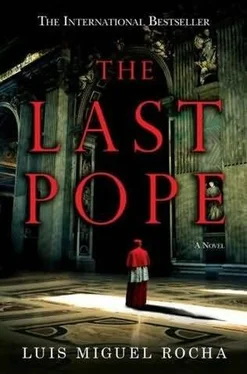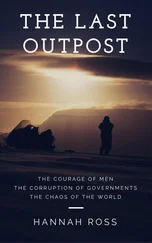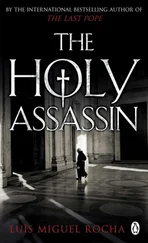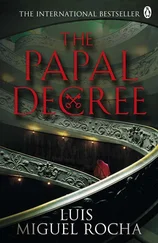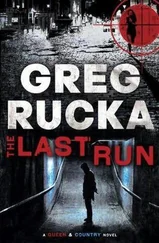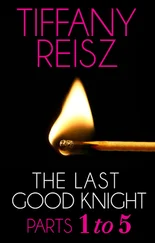“Of course, sir,” Barnes affirmed.
The second call was to remind him that he mustn’t lose sight of the adversaries, not even for a moment. He needed to follow those orders, whatever the cost.
“Should there be collateral damage, put the blame on any Arab group.
The next day, have some protest marches, paying homage to the victims and condemning terrorism. Problem solved,” the Italian said, with no tinge of irony whatsoever.
“That’s what we’ll do,” the CIA agent agreed. Barnes knew that in the course of operations there could be a stray bullet, or several of them. A bomb might explode at the wrong moment. And targets could pick up reinforcements. That’s how it was.
“One more thing. Wait for my instructions. Don’t do anything without my authorization.”
And the Master hung up in the abrupt manner to which Barnes had grown accustomed. It was five o’clock in the morning.
SARAH AND JACK were driving in circles around London, forcing the agents who trailed them to retrace a tourist’s itinerary through the historic central city. Several times they had gone by Buckingham Palace, then followed the Mall to Trafalgar. Again they took Charing Cross Road or any other street. And finally, back to the beginning. All at a leisurely pace, as was required for an enjoyable visitor’s tour. And that was the impression Barnes got every ten minutes from Staughton’s methodical reports.
“It’s strange that they haven’t even attempted to flee,” Barnes thought out loud, alone in his office. “They haven’t stopped for gas. At some point they’ll have to,” his soliloquy continued while he awaited new information. “I need something decent to eat.”
Jack Payne was a legend in the P2 Lodge, so much so that the CIA recruited him for some of its most delicate work. His name meant competence, work well done. The P2 was an arrogant organization. It would not hesitate to demand that certain forces in the CIA serve its purposes, a useful means of gaining the benefits of American technology and of charging a monthly fee on top of that, but he didn’t approve, then or now, of the lending of its members to Uncle Sam’s agency, especially its top performers such as Jack. At times, however, when this Masonic Lodge thought it could gain something from the practice, it simply authorized the use of some of its members, as happened with Jack on three or four operations that he completed under Barnes’s orders. Jack Payne was the kind of man a director liked to have in his ranks. Barnes had even made the proposal for his admission to the CIA.
What a huge mistake. It’ll be my downfall at the agency, Barnes reflected, leaning back in his chair, exhausted by all the events of the long night. He realized that he’d be fired from the job he’d earned through so much blood, sweat, and tears. It was for good reason that Americans said, “No pain, no gain.” His position at the agency was truly the result of a lot of effort, a lot of pain, a lot of hours without sleep, and without a decent meal, like today. If there was anything that this night reminded him of, it was the uncertain times of the cold war, when the world was crazy.
“You must have been crazy, Jack, when you decided to follow me,” the great bulk of a man muttered resentfully to himself.
Suddenly the door opened and a weary Staughton appeared, putting an abrupt end to Geoffrey Barnes’s musings.
“Sir.”
“Staughton.”
“They’ve disappeared.”
Now we’re going to disappear,” was what Rafael told Sarah, still inside the car.
They continued their visitors’ tour through the British capital a while longer, while the city slowly began to awaken. They were almost out of gas. Rafael asked Sarah to turn left at the intersection with King’s Cross Station and to slow down. Then the double agent moved to the backseat, under Sarah’s close scrutiny.
Jack folded down the backseat to gain access to the trunk, from which he took out a green wooden box. He returned the seat to its normal position, sat up, and rolled down all the windows. Following this, he opened the wooden box, took out the small balls it contained, and began throwing them one by one to one side of the street, and then the other, almost rhythmically. The balls rolled under the automobiles parked at the curb.
“No matter what happens, don’t stop until I tell you.”
The car was already about a hundred yards from Euston Station.
“Now speed up and then stop in front of the station,” Rafael ordered, throwing the last ball.
“What are you doing?” Sarah asked.
“We’re almost there,” he said.
Then, when the car was just outside Euston Station, the unexpected happened.
“Okay, shut off the engine.”
Sarah obeyed, and right away all hell broke loose. A succession of small explosions moved toward them from the King’s Cross intersection, approaching from both sides of Euston Road. A thick cloud of tear gas invaded the street. Shouts could be heard. People who lived in the neighborhood woke up terrified.
Shielded by the gas barrier behind them, Rafael and Sarah ran toward Euston Station.
Without exchanging a word, they ran to the taxi stop on the lower level. From there, everything became much simpler. They asked the taxi driver to take them to the Waterloo Station, where they arrived in time to catch the Eurostar headed for Paris.
They took advantage of the comfortable trip to rest a bit. Sarah slept almost the entire way, and Rafael leaned back in his seat, although only after making two inspections of the whole train. No one was following them.
Two hours and thirty-seven minutes later they arrived at the famous Gare du Nord in the center of Paris. From there they moved on to Orly. They had managed to disappear.
The Airbus A320 reached its cruising altitude of 36,000 at a speed of 540 miles per hour. Within approximately two hours it would land at Portela Airport, Lisbon, the destination of the 111 passengers that included Sarah Monteiro, now officially Sharon Stone, a French citizen, and Rafael, officially John Doe, a British subject. Flight TP433 had left Orly a bit more than twenty minutes before, behind schedule. Since they were both awake, Rafael had to face questions and more questions from the career reporter at his side.
Rafael had once heard someone say that “the fathers were in Jerusalem.” Probably the reference was to the mythical builders of the Temple of Solomon. Those venerable architects had conveyed their knowledge to the carpenters and stonecutters of the West, the same ones who erected the cathedrals in the Middle Ages. They were the maçons, users of the drop hammer, chisel, square, compass, and plumb line. Those powerful guilds knew the Lord’s secrets. Even now, in Notre Dame or Reims or Amiens, one could see that those men truly knew what God wanted for the world. The Lord Jesus Christ proclaimed: “Render to Caesar that which is Caesar’s and to God that which is God’s.” The whole world knew this, including politicians, university professors, doctors, bankers, civil servants, soldiers, writers, and journalists. Even the pope knew it. “God is to be found everywhere, my child, even in arms factories and bank safe-deposit boxes.”
From what Rafael had heard, the Masons had been on the scaffolds when the bloody heads of kings and nobles rolled in revolutionary France. And later they were behind the wars and violent regime changes in Europe and the Americas. The members of the P2 could take satisfaction in belonging to the same organization as many presidents of the United States and of Europe.
In Rome, Italy ’s Grande Oriente began to suffer from internal schisms near the turn of the twentieth century. It was then that Propaganda Due was founded. Those who held the strings of power around the world complained that Masonry was being bandied about, with members’ names in the papers and their activities directed by inept, vain politicians. The number 2 would provide the anonymity they sought, ending the announcements, photos, and leaked names. The P2 did not exist. Nobody should know anything about it. The loggia coperta welcomed, among those privileged to know God, everybody ready to devote his life to building the Kingdom of Heaven on earth.
Читать дальше
